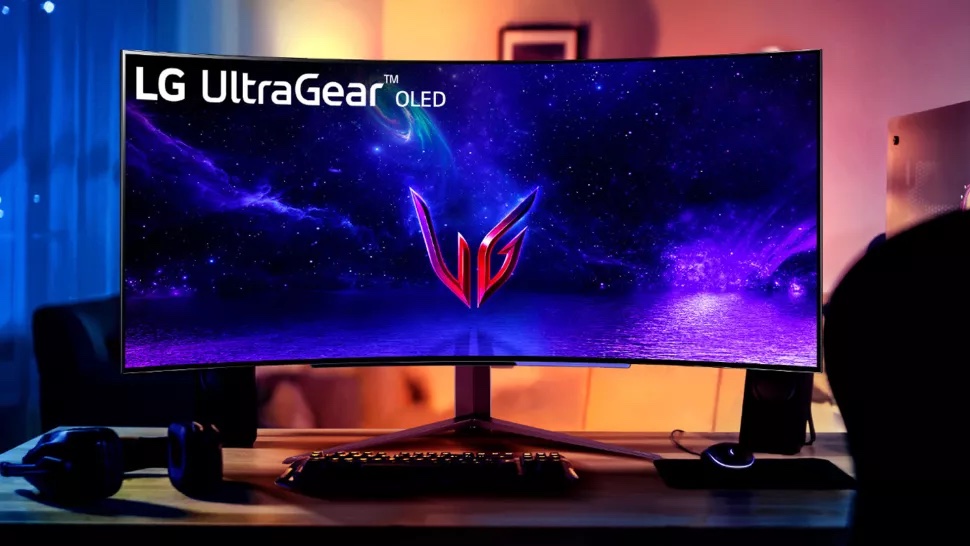

I wrote about the new LG UltraGear OLED monitor a few days ago, and it's an impressive bit of kit: 240Hz refresh rate, a 45-inch display with 800R curvature, lag of just 0.3ms. But it's also $1,699, and there aren't many smaller or cheaper options. There's a couple of 34-inch Alienware QD-OLEDs at around £1,000, and ASUS has its ROG Swift 42-incher at around £1,399. And that's pretty much it.
If you're thinking about getting an OLED display, I don't think this is the right time to do it.
Burn, baby, burn
The first and most obvious reason not to go OLED is that there's a risk of burn-in. It's not as bad as with the CRT displays I did my first computing on, but it's still a problem with OLED and a particular problem with OLED monitors. And that's because we use monitors for different things than we do TVs, so for example when I'm working there are tons of things that live permanently in the same place for all the hours my displays are on.
There are some tech workarounds for screen burn on OLED, but they're workarounds rather than solutions. I'd be very wary of investing big money in an OLED monitor until I could be sure I won't end up with a permanent reminder of my most-used icons and apps.
The other reason is that there simply aren't many good OLED monitors out there, and as a result you don't have the intense competition that you'll find in every other sector of the display market. OLED TVs have been plummeting in price and their specs improving dramatically; for example if you're buying for gaming, you might be better with an OLED TV: LG's 42-inch version of the LG C2 is now under £1,000 and great for Xbox Series X and PS5 gaming.
If you're a creative pro such as a video editor or photographer then OLED's colour reproduction and superlative contrast matter. But if you're not, the best monitors and best gaming monitors for most people aren't OLED: over time that'll change as more manufacturers bring more models to market, but right now for everyday computing and casual gaming OLED is overkill – and overly expensive too.
Sign up to the T3 newsletter for smarter living straight to your inbox
Get all the latest news, reviews, deals and buying guides on gorgeous tech, home and active products from the T3 experts
Writer, musician and broadcaster Carrie Marshall has been covering technology since 1998 and is particularly interested in how tech can help us live our best lives. Her CV is a who’s who of magazines, newspapers, websites and radio programmes ranging from T3, Techradar and MacFormat to the BBC, Sunday Post and People’s Friend. Carrie has written more than a dozen books, ghost-wrote two more and co-wrote seven more books and a Radio 2 documentary series; her memoir, Carrie Kills A Man, was shortlisted for the British Book Awards. When she’s not scribbling, Carrie is the singer in Glaswegian rock band Unquiet Mind (unquietmindmusic).
-
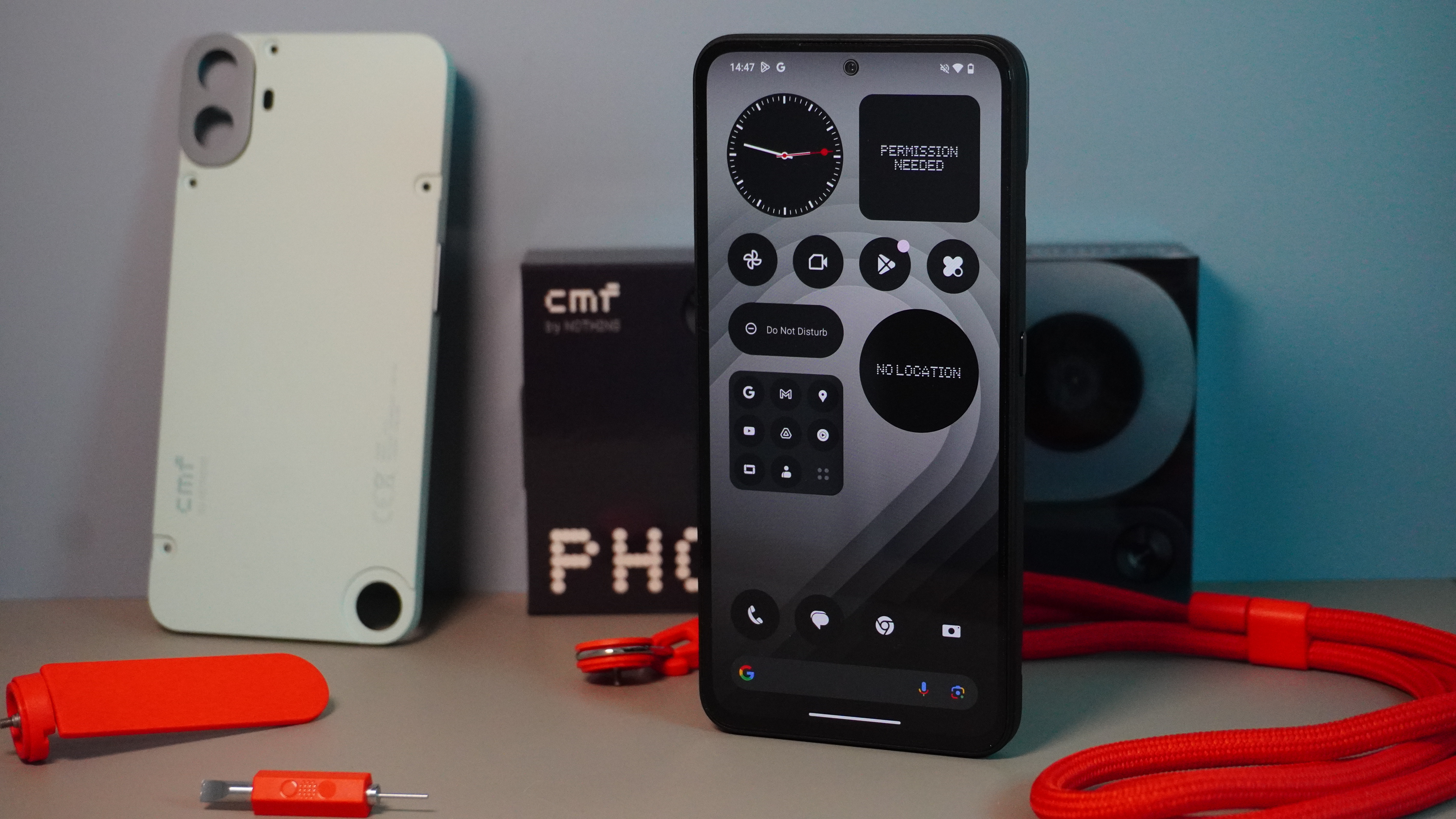 New Nothing phone does something iPhone and Samsung don't – but there's a catch
New Nothing phone does something iPhone and Samsung don't – but there's a catchYou have to live in a certain country to benefit
By Britta O'Boyle Published
-
 The Last of Us season 2 isn't the best, according to viewers
The Last of Us season 2 isn't the best, according to viewersCritics and viewers are at odds with The Last of Us season 2's premiere
By Mike Lowe Published
-
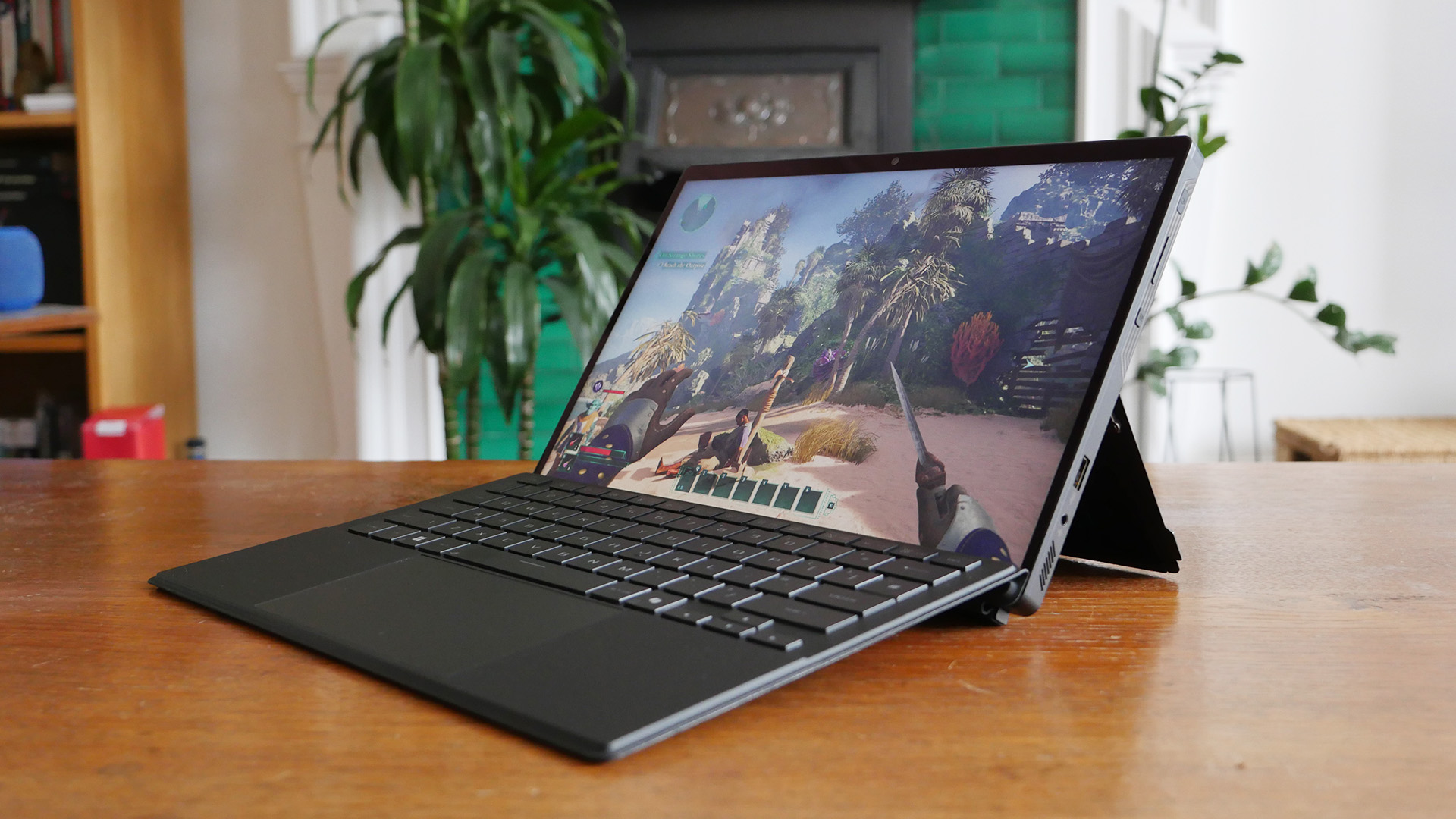 I tried a cutting-edge Asus gaming tablet, but it's left me conflicted
I tried a cutting-edge Asus gaming tablet, but it's left me conflictedThe Asus ROG Flow Z13 (2025) is impressive, but also weird
By Max Freeman-Mills Published
-
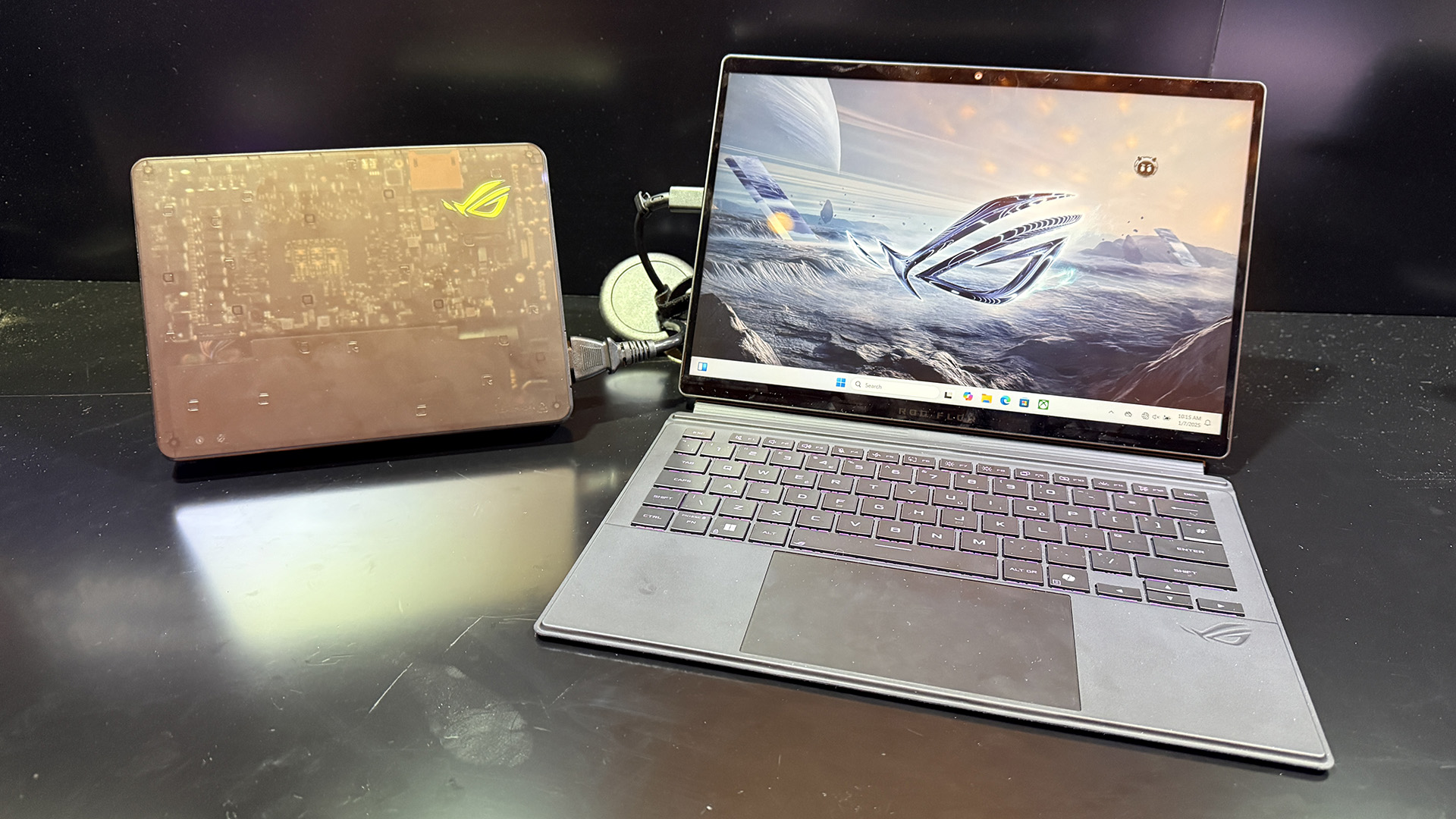 Forget your steam decks, Asus just updated its powerful gaming tablet
Forget your steam decks, Asus just updated its powerful gaming tabletThe Asus ROG Flow Z13 gets a big update for 2025, making it the ultimate gaming all-in-one
By Mat Gallagher Published
-
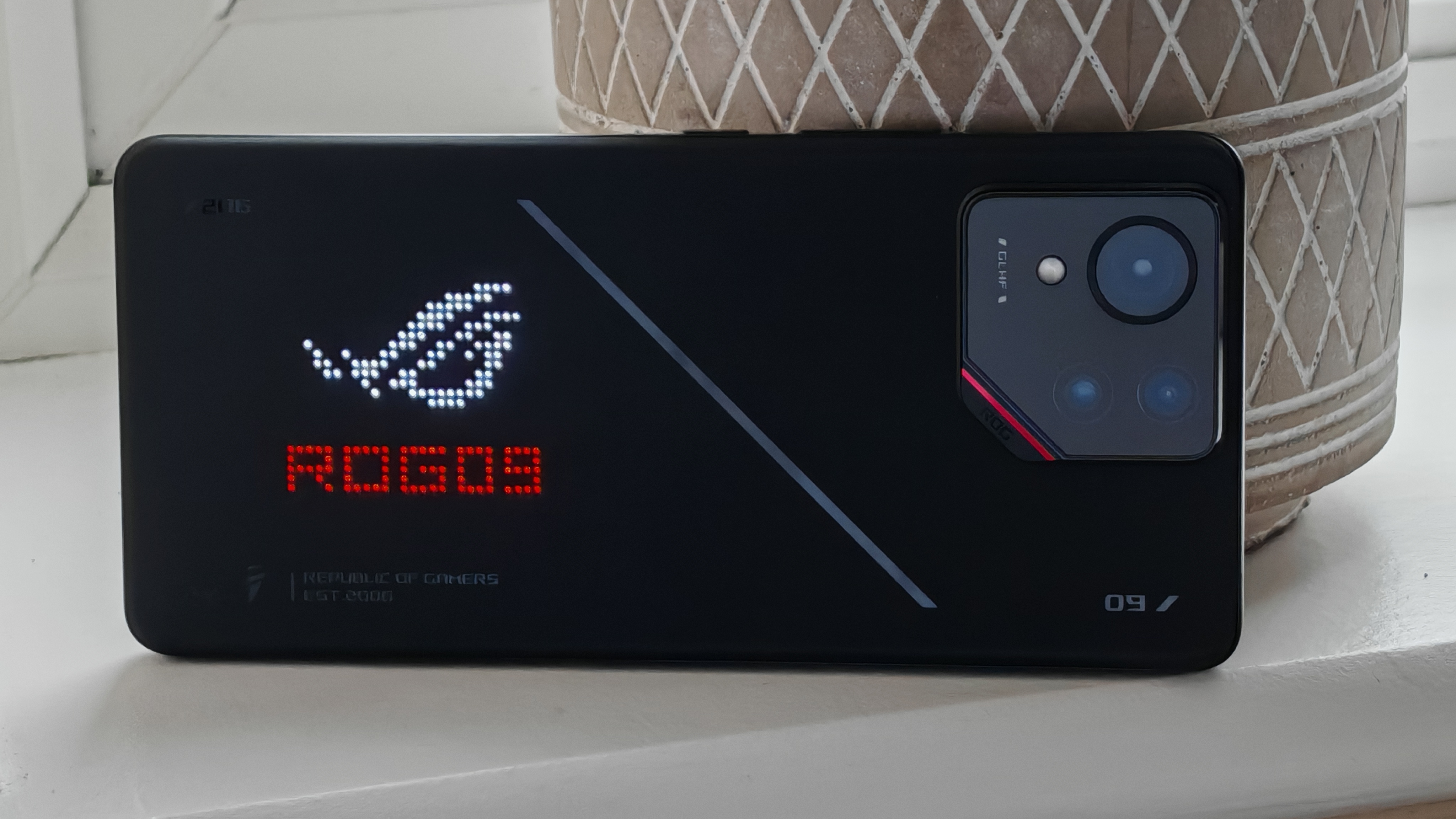 I've tested the Asus ROG Phone 9 Pro – still the top gaming phone, now with a cooler case!
I've tested the Asus ROG Phone 9 Pro – still the top gaming phone, now with a cooler case!Still the standout performer, with a host of added goodies
By Sam Cross Published
-
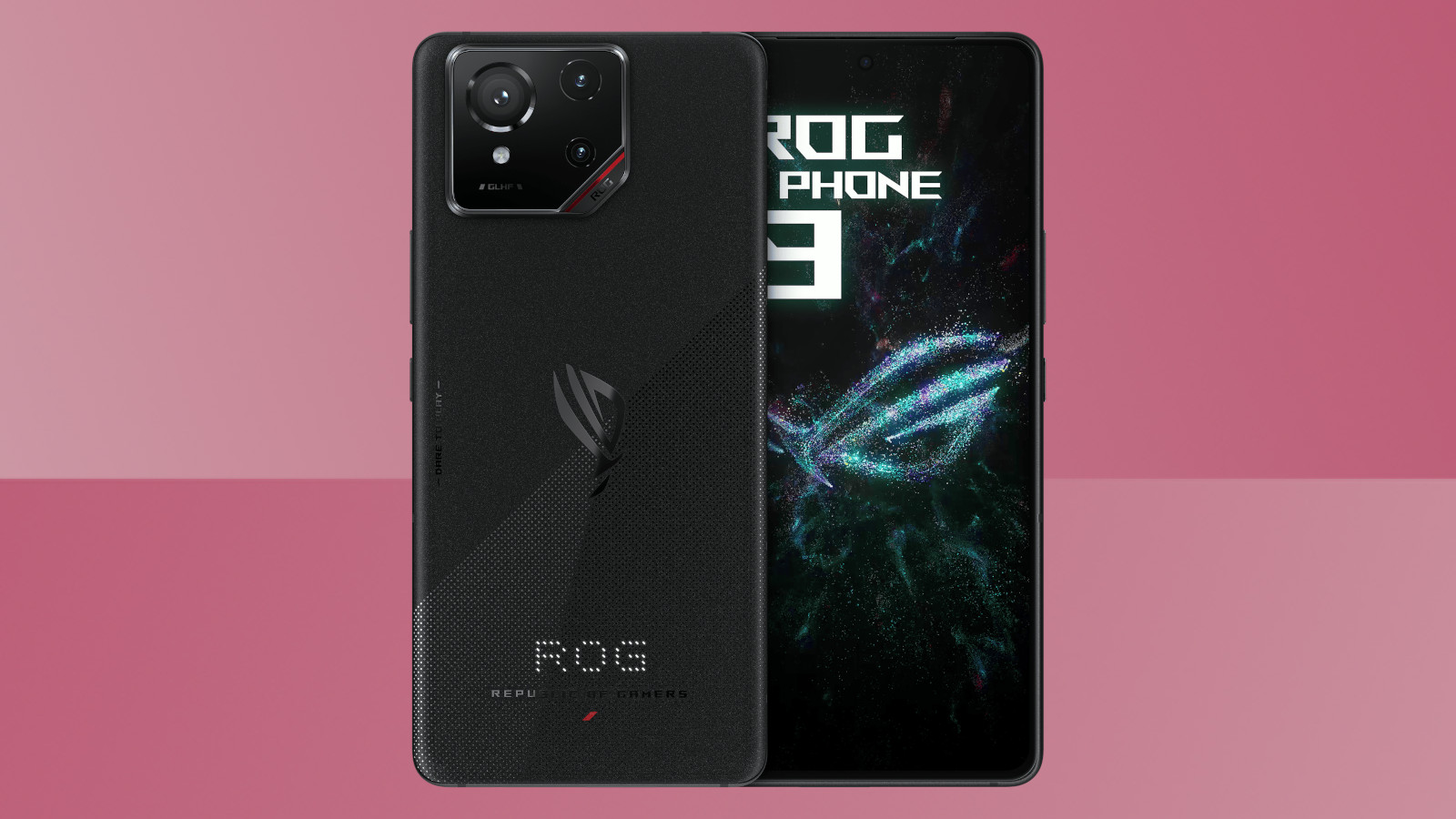 Asus ROG Phone 9 announced – with some seriously exciting specs
Asus ROG Phone 9 announced – with some seriously exciting specsThis could be a killer gaming phone
By Sam Cross Published
-
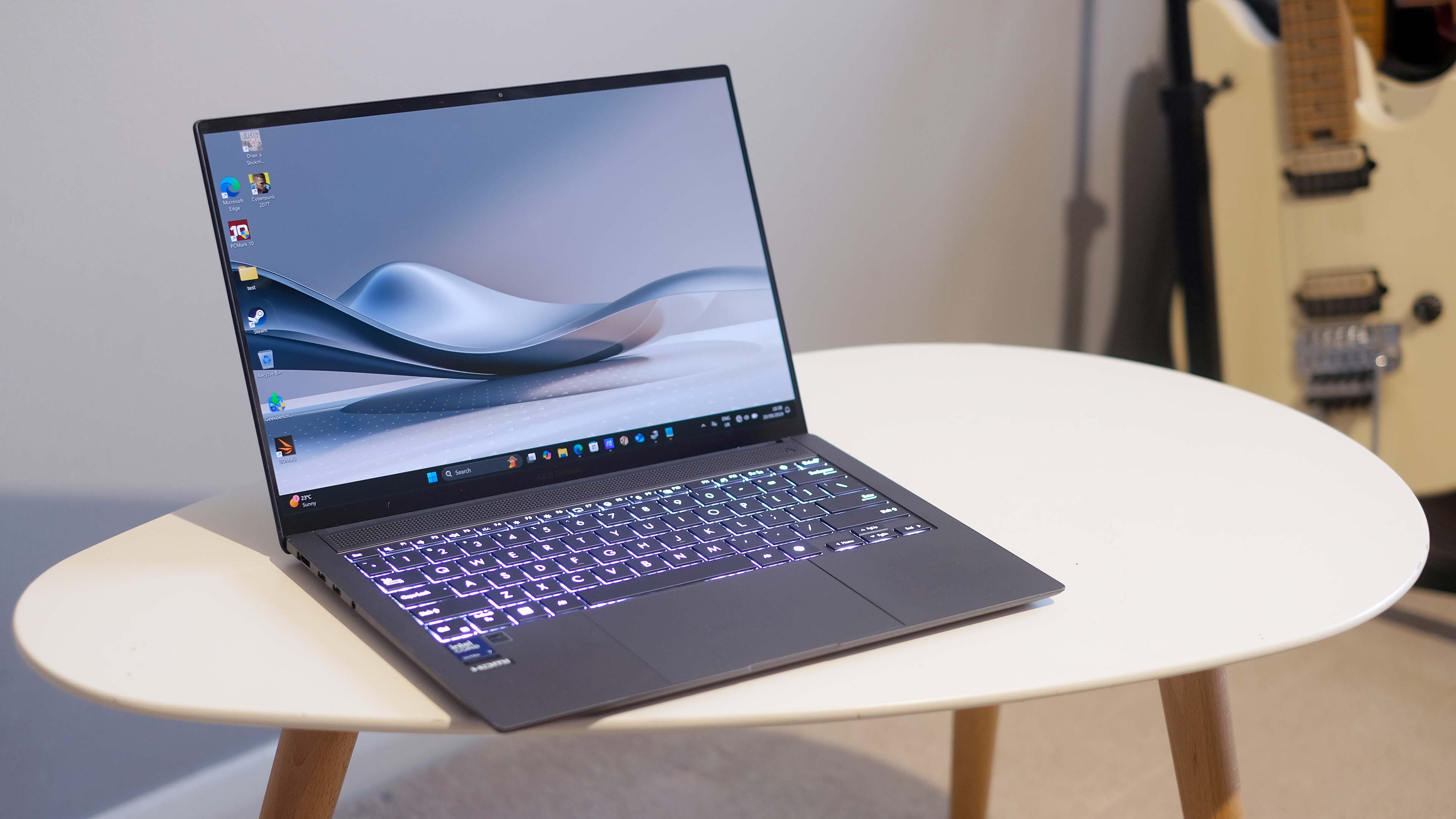 Asus Zenbook S14 review: astounding all-rounder showcases Intel's latest in style
Asus Zenbook S14 review: astounding all-rounder showcases Intel's latest in styleHousing Intel's Core Ultra Series 2, the Asus Zenbook S14 is a great portable laptop that can deliver on-the-go gaming goods too
By Andrew Williams Published
-
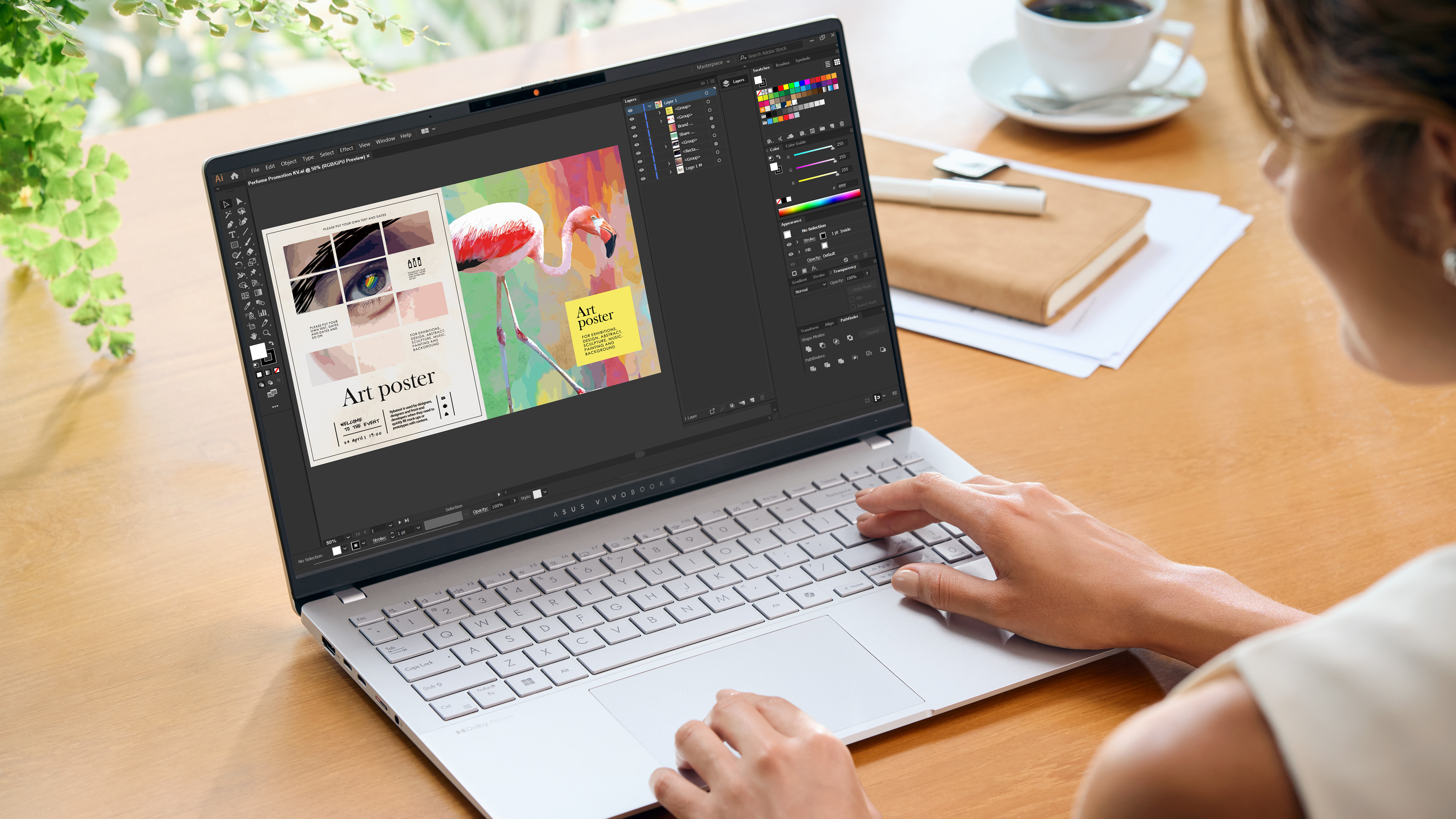 Asus Vivobook S 15 is the first to feature a new Snapdragon processor
Asus Vivobook S 15 is the first to feature a new Snapdragon processorThis could be a turning point for Windows laptops
By Sam Cross Published
-
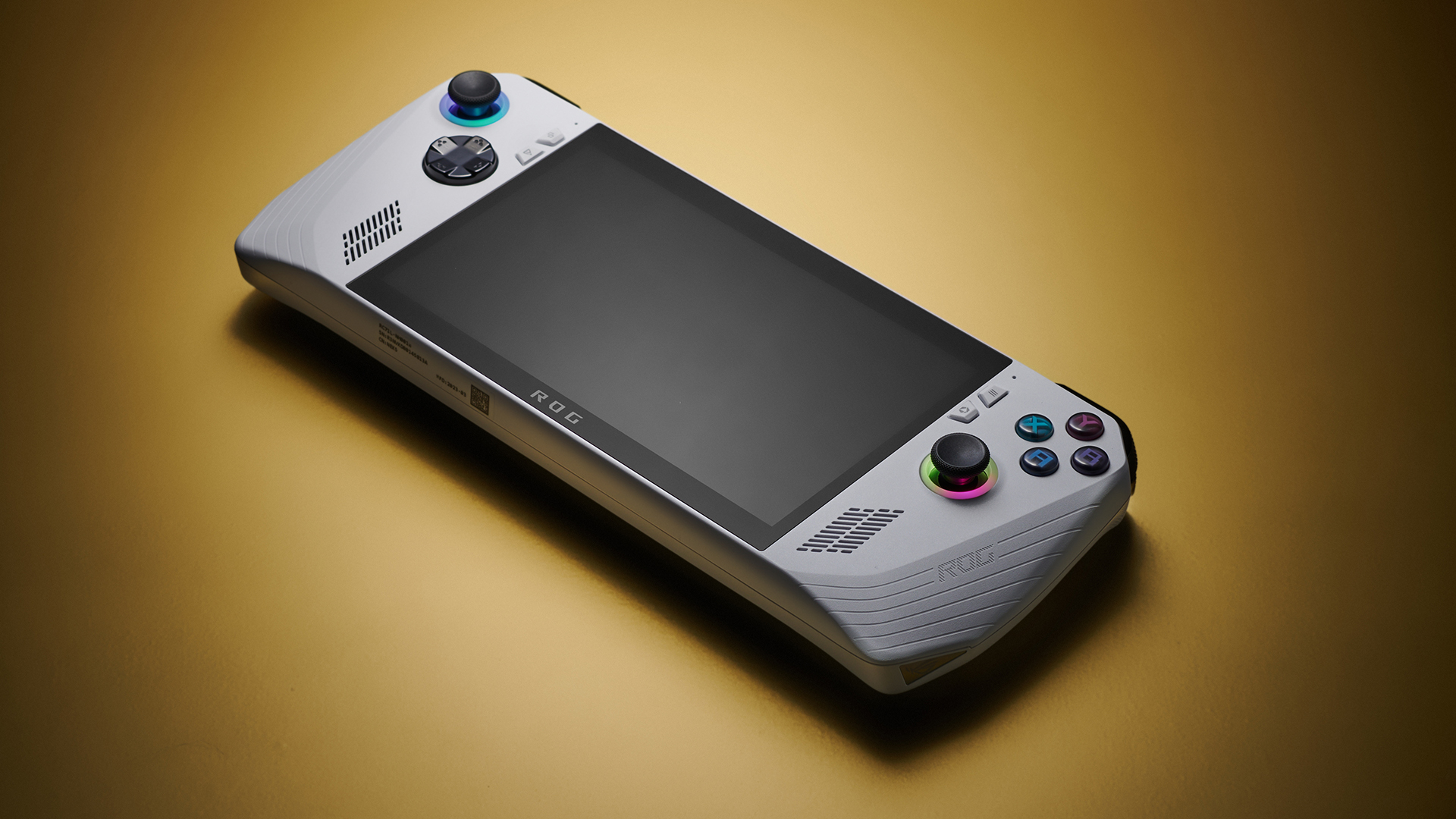 Asus ROG Ally could run Steam Deck OS in the future
Asus ROG Ally could run Steam Deck OS in the futureCould there be SteamOS on your ROG Ally soon?
By Chris Hall Published
-
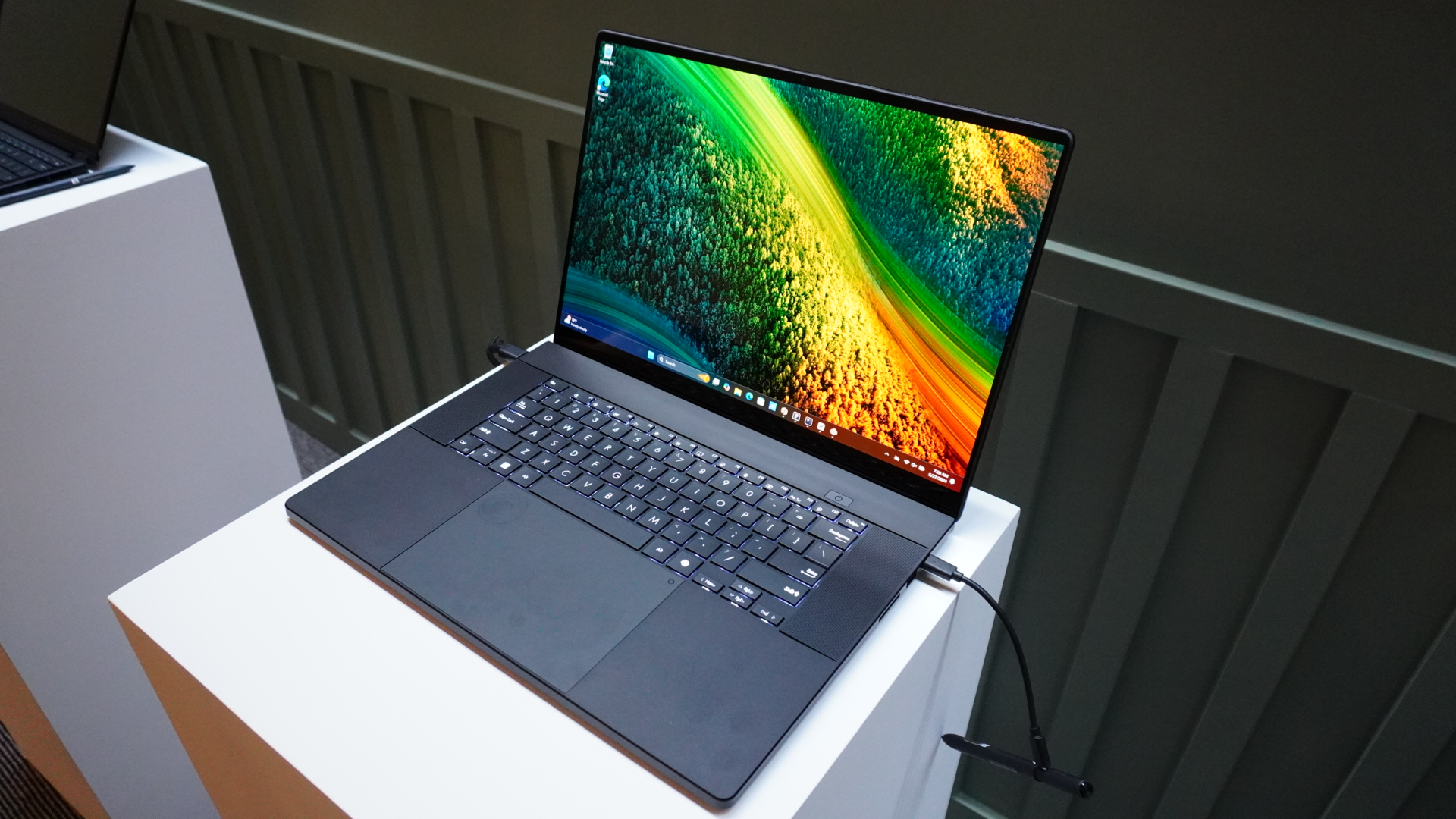 I've tried the Asus ProArt P16 – is this the MacBook Pro killer we've been waiting for?
I've tried the Asus ProArt P16 – is this the MacBook Pro killer we've been waiting for?The new range of creator-focused devices look set to offer some stern competition for Apple MacBooks
By Sam Cross Published